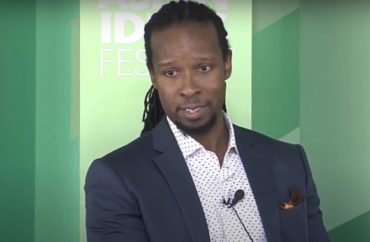
The Attorney General of Arkansas has weighed in on the teaching of critical race theory and antiracism in public schools and universities, in response to a request for a legal opinion from a state legislator.
Representative Mark Lowery had asked AG Leslie Rutledge:
Does the introduction of practices based on “antiracism” and critical race theory in Arkansas public schools and universities violate Title VI of the Civil Rights Act of 1964, the Equal Protection Clause of the Fourteenth Amendment, Article II of the Arkansas Constitution, or other applicable nondiscrimination laws?
Rutledge concluded that yes, it does.
“With certain qualifications set forth below, instituting practices based on critical race theory, professed ‘antiracism,’ or associated ideas can violate Title VI, the Equal Protection Clause, and Article II of the Arkansas Constitution,” the attorney general said.
“Any effort to take account of race in a way that differently accords benefits or opportunities or creates a hostile environment in an educational institution is almost certainly unlawful under the Equal Protection Clause and Title VI,” Rutledge’s analysis said.
“A racially hostile environment could also be created through curricula, instruction, or other programs or activities that communicate the following ideas,” Rutledge said, before providing a variety of concepts. It
These include teaching “certain character traits or beliefs are proper to individuals of some races but not others,” “that an individual, simply by virtue of race, is oppressive or oppressed, privileged or victimized” and “an individual, simply by virtue of race, should feel discomfort, resentment, guilt, or distress.”
Those concepts are hallmarks of the teachings of people such as Boston University Professor Ibram Kendi (right).
However, this limitation does not apply to a critical discussion of historical events and figures.
The legal analysis said:
But it is important to note that the unlawfulness of such practices does not preclude teaching the history of racial injustice or our Nation’s longstanding and continuing efforts to realize what Dr. Martin Luther King, Jr. recognized as the dream expressed in our founding creed: We hold these truths to be self-evident, that all men are created equal. 43 Thus, the law does not prohibit teaching about the history of slavery, Jim Crow laws, the eugenics movement, and the Ku Klux Klan. Nor does it prohibit teaching about the Constitution and the abolition of the slave trade, the abolitionist movement, the Civil War, Abraham Lincoln and the Emancipation Proclamation, the Civil War Amendments, and the civil-rights movement. These are indispensable topics for history and civics education.
“Critical race theory and ‘antiracism,’ as recent developments, have very little to do with this history,” the analysis added. “That said, there may be some legitimate pedagogical uses of these ideas in the university setting. At a high level, for example, greater clarity might be gained by contrasting the civil-rights movement’s grounding in the Founders’ classically liberal vision of individual natural rights44 with critical race theory’s grounding in a broadly socialist vision of conflict based on group interest and identity.”
IMAGE: Aspen Institute/YouTube
Like The College Fix on Facebook / Follow us on Twitter




Add to the Discussion